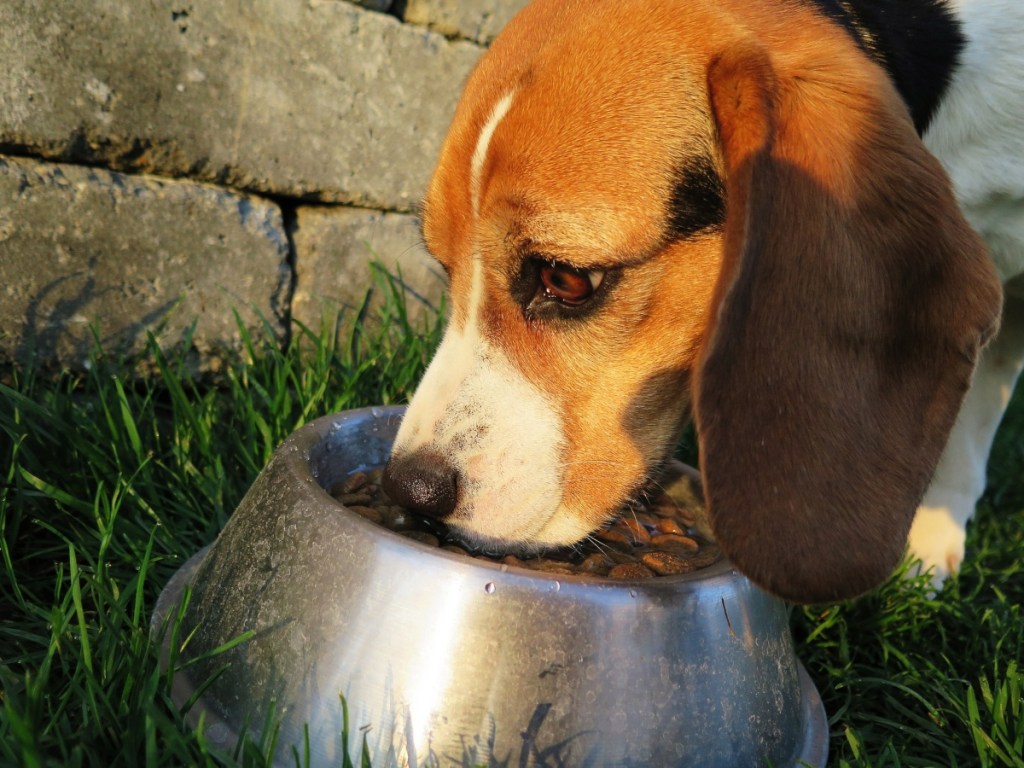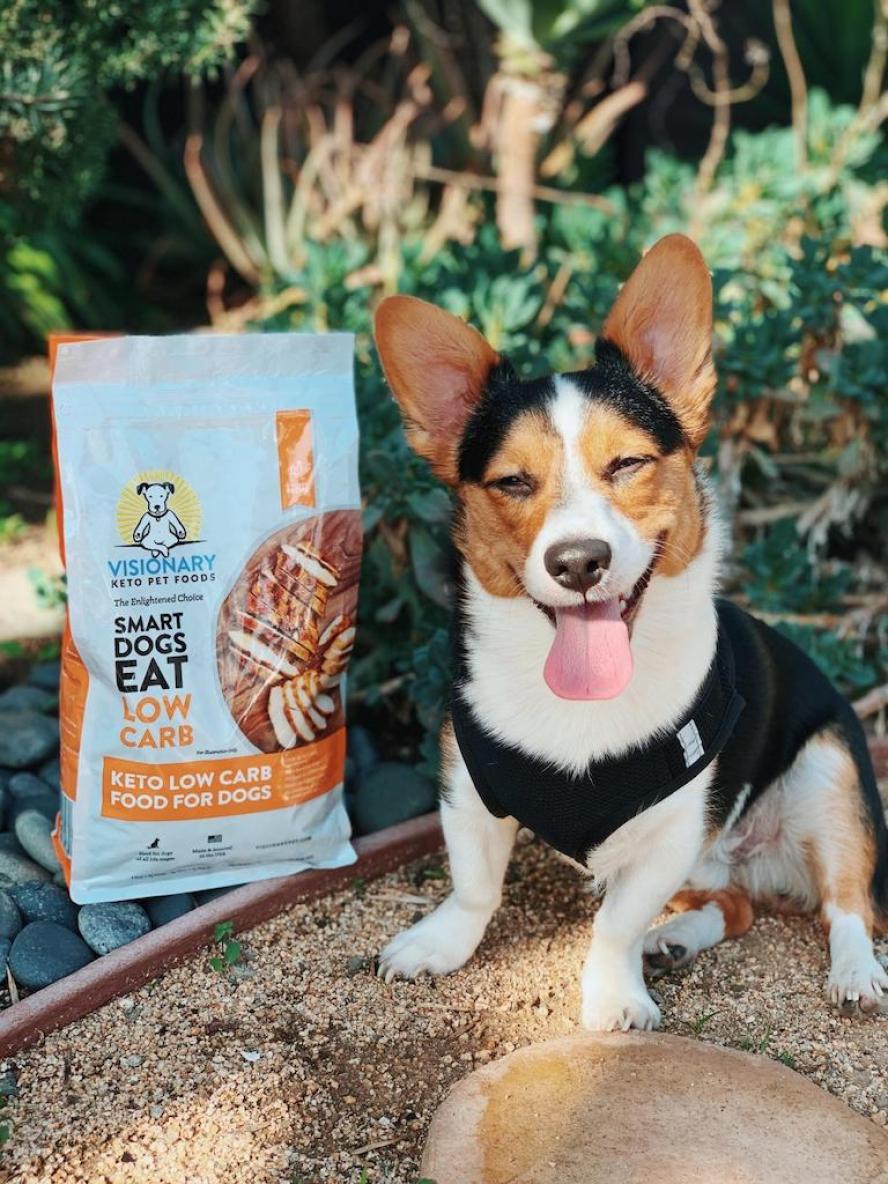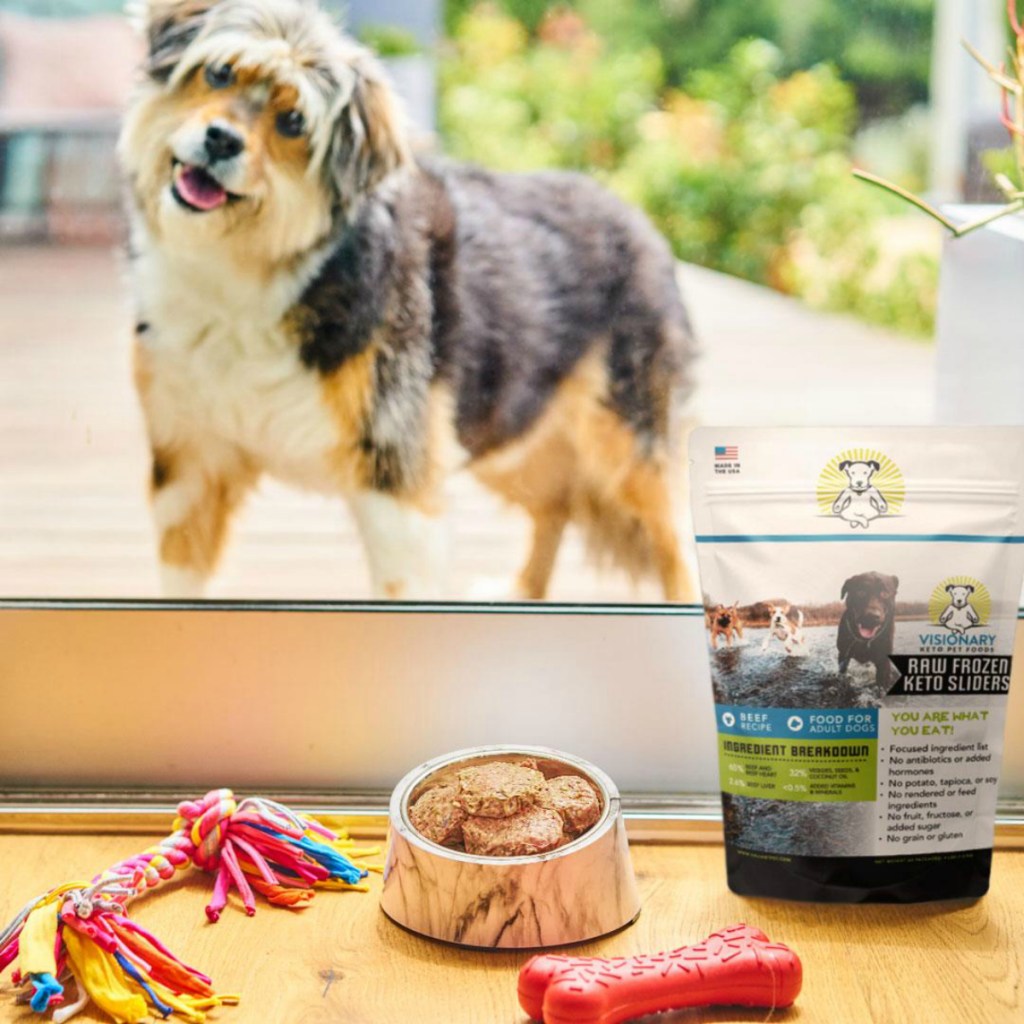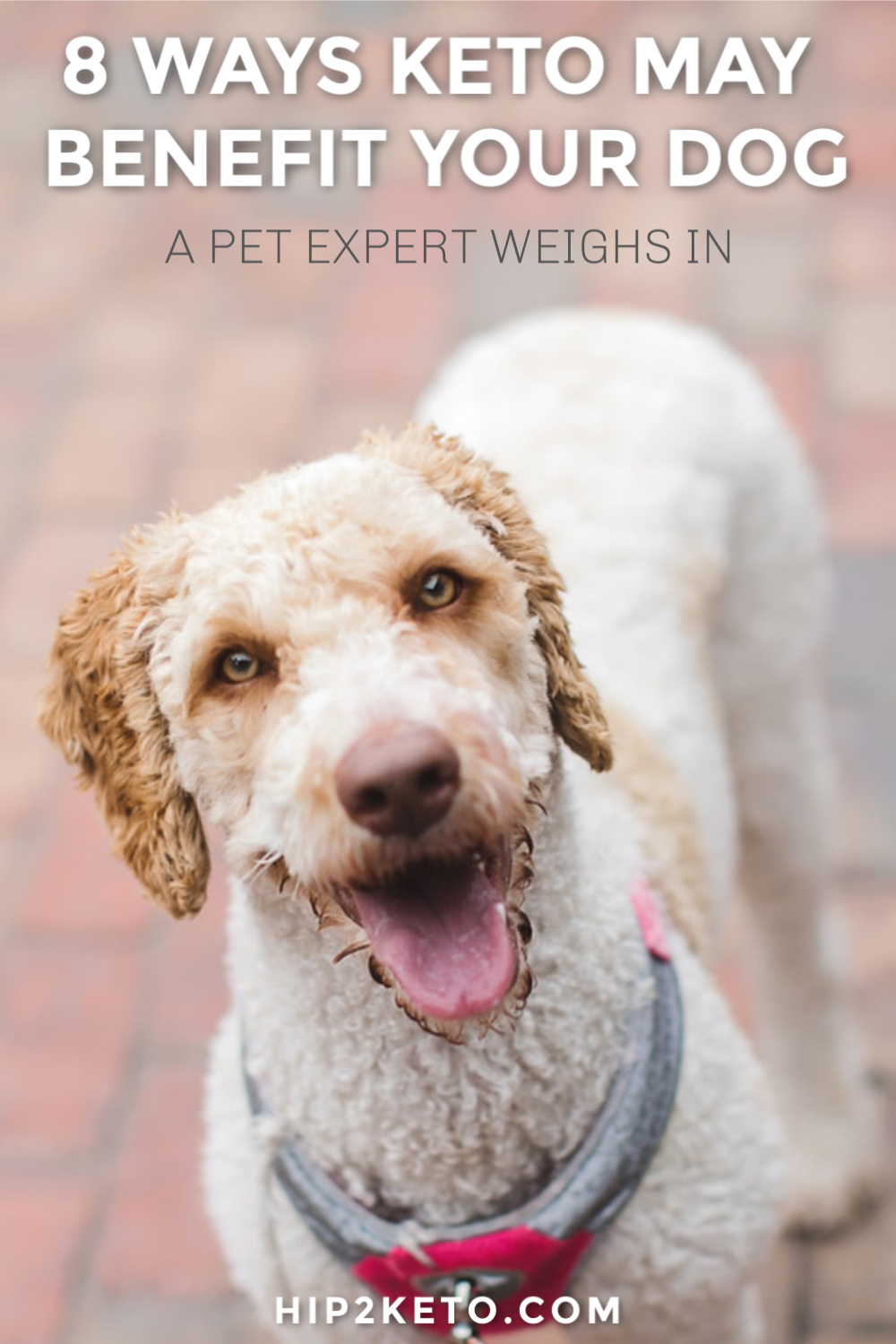8 Reasons Keto Might Be Right for Your Pup

Being keto-adapted has shown promise in treating a variety of human health conditions. While certain diseases like Alzheimer’s aren’t applicable to our furry companions, there are pet problems that can benefit from minimizing carbohydrates through a raw food or ketogenic diet!
Here are 8 reasons why a keto diet might be right for your dog:
1. Insulin Resistance
The most common health problem for dogs is the same as it is with people: being overweight. Dogs can gain weight when they develop insulin resistance. Dog and human bodies produce insulin to control the level of glucose in our blood.
Dogs are even more prone than humans to develop a resistance to insulin because their short digestive tracts already make it difficult for them to digest carbohydrates. If you’ve ever fed your pup peas or carrots, you might have noticed that those carbs don’t break down much during digestion.
Chunky pups could be developing insulin resistance due to an inability to process the abundance of carbohydrates found in commercial pet foods. Those mass kibble producers like to use more carbs than are ideal for most dogs because they are cheap to manufacture and less prone to spoiling. Cutting back on those carbs can kickstart your pup’s ketone production and help them trim up.
2. Cancerous Intent
In the 1920s, Otto Warburg observed that cancer cells proliferated more readily using glycolysis than oxidative phosphorylation. While healthy cells could switch to metabolizing ketones, cancer cells needed sugar or they would essentially starve. We call this observation “The Warburg Effect”.
Pets with cancer can see slowed or decreased tumor cell growth while on a ketogenic diet. The non-profit organization KetoPetSanctuary.com is a great resource for those looking to control cancer cell proliferation.
A ketogenic diet can also be a preventative measure for pet breeds more likely to develop cancer such as Bernese Mountain Dogs, Rottweilers, Boxers, and Golden Retrievers.
3. Allergies
Wheat is a fairly common allergen for dogs. These pesky carbs can cause respiratory, skin and coat, and digestive issues. Luckily, ketogenic diets are naturally wheat and gluten-free.
There’s also anecdotal evidence to suggest that other allergies benefit from decreased carbohydrate diets. This is likely due to the decreased stress on the gut and a more vital microbiome. Wheat-free foods such as those offered by Zignature can be a great way to begin to assess your dog’s food intolerances.
4. Seizures
Epileptic seizures are a common doggy health condition, especially for breeds like Vizslas, Golden and Labrador Retrievers, and Beagles. Humans have been using ketogenic diets to control seizure activity since 1921!
While the initial switch to keto can cause electrolyte imbalances which may increase seizure activity, long-term keto eaters can see decreases in seizure activity. To manage electrolytes consider using a supplement such as Nupro Nutri-Pet and monitor your dog’s water intake.
5. Diabetes
Studies with humans have shown a complete reversal of Type 2 diabetes after implementing a ketogenic diet. When the body becomes keto-adapted, it becomes more able to regulate insulin production. Anecdotal evidence suggests this may hold true with dogs as well.
If you’re interested in treating your dog’s diabetes with a ketogenic diet, make sure to have a vet on board and consider investing in a blood glucose testing kit to ensure your pet’s glucose levels stay in a healthy range.
6. Arthritis/Joint Issues
Excess carbohydrates are a common cause of inflammation in dogs, especially for seniors. This inflammation can lead to sensitive joints and might look like trouble jumping in and out of the car or climbing stairs. Decreasing the carbs in their diet can help with ease of movement.
7. Digestive Issues
The universal recommendation for a dog experiencing chronic diarrhea is to go on a bland diet of chicken and rice. It’s telling, isn’t it, that vets everywhere agree that real food is superior to processed food for a pup in digestive distress.
Real food goes a lot further calorically speaking than kibble. Dogs can eat less when they eat whole. Less food means a smaller digestive load, which means decreased stress on the digestive tract, and bonus: fewer, smaller doggy bombs in the yard.
8. Athletes & Working Dogs
Just as humans in ketosis can benefit from increased clarity and a decrease in brain fog, working dogs can see a spike in energy levels when they switch to a more ketogenic diet. Increased focus can mean shaving a few seconds off their lure course time or adding a few inches to their maximum height in dock jumping, working dogs and athletes may benefit from a ketogenic diet.
Other factors to keep in mind when considering keto for your dog:

Dogs Vs Humans: Fat Ratios
There’s one huge difference between dogs and people when it comes to ketosis: human livers have a higher tolerance for processing high ratios of fat. Dogs that are overfed fatty foods can develop pancreatitis, which is a shutting down of the liver.
Make sure to research the appropriate levels of fat for your dog’s size, age, and activity level. Then, transition your pet slowly while watching their behavior and marking any health changes.
Feeding Your Dog Keto
There are a few commercial pet foods on the market with ketogenic dietary structures, but Visonary Pet is a great brand to start with.
If you’re interested in preparing your dog’s ketogenic diet yourself, books like Dr. Becker’s Real Food for Healthy Dogs & Cats and K9 Kitchen by Monica Segal can help you get started understanding which keto-friendly foods aren’t appropriate for your dog’s diet. For instance, while nuts and legumes are excellent sources of fat for ketogenic humans, some varieties contain toxins or fungi that dogs cannot break down.
For even more resources and helpful information, you can download a free ebook “A Pet Parent’s Guide to the Ketogenic Diet” from KetoPetSanctuary.com.
Decreasing Carbs in a Commercial Diet
Want to get started decreasing your pup’s reliance on carbs before going full keto? The fastest way is to switch from kibble to raw. Some raw food companies ship nationwide, however, there are countless smaller, local brands available in independently-owned pet stores.
Find your local pet store and ask what raw brands they carry. Some local butchers even sell Fido-grade castoff cuts at a discount for pet parents looking to score a deal.

If you’d like to supplement a kibble diet, often the answer is just adding more protein with an appropriate ratio of fats. Think about what protein and fats your dog’s canine ancestors would have been able to find in the wild. A weekend supplementary meal might look like a leftover pork chop with the rind still attached.
If your pup has a sensitive stomach and doesn’t tolerate food changes well, try lightly cooking some 80% lean ground beef and mixing it with pup’s regular kibble. These easy additions are a great way to begin increasing the biodiversity of your dog’s diet, so she can be healthy her whole life long. 🙌
Post contributed by Maddy Miller
Maddy Miller, MFA is a pet-centric writer living in Salt Lake City, Utah with her Belgian Malinois, Freyja. Her areas of expertise include sustainable nutrition, behavioral training through positive reinforcement, and the benefits of CBD oil.















Feeding my pups raw a little over a year now. Would never go back to feeding kibble!! The health benefits are crazy good, especially for my 14yo. And, I never have to worry about a recall….
That’s awesome! Thanks for sharing your experience with us! Good to know it has been such a positive experience for your dogs!